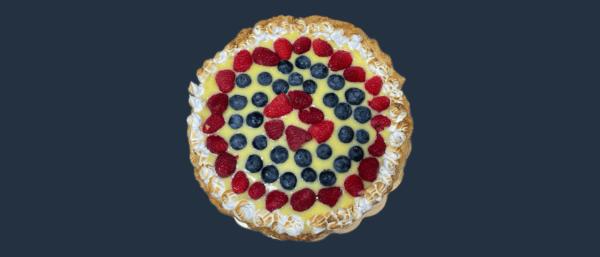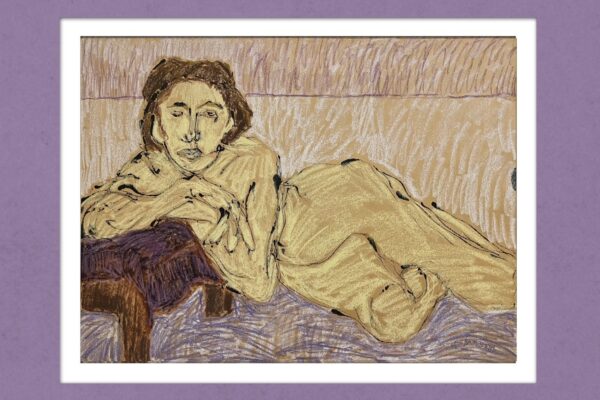This is the fourth edition of The 2 Susans, a monthly LinkedIn newsletter produced by Dr. Susan Baumgaertel and Dr. Susan Vogler.
We are two doctors who are curious about aging. Our newsletter embraces conversations about aging from many different perspectives—medical, psychological, societal and even personal. Of course we’ll have a lot of content that pertains to peri/menopause and beyond.
To read the June edition, click here. To read this new edition on LinkedIn, click here.
Enjoy the reprint below!
Stars & Stripes: Beyond Body Image
It seems fitting in July, as we celebrate our nation’s independence, that both Dr. Vogler and Dr. Baumgaertel reflect on honoring our individual body image as we age.
Susan V:
The physical and emotional changes during perimenopause can significantly impact body image. Society’s emphasis on youthful appearances can exasperate these feelings, making it harder to embrace natural changes. Many women struggle with accepting a changing body shape, leading to reduced self-esteem and confidence.
Some studies have demonstrated that about half of perimenopausal women report symptoms of depression, which, along with decreased self-esteem, can increase the risk of body dissatisfaction. Women who are obese before entering perimenopause may be more vulnerable to body image issues in later life.
For many women, body image is a lifelong struggle that extends beyond youth. Social media often emphasizes idealized youthful appearances, exasperating existing body image challenges, and current tributes to societal pressures. Experts note an increasing trend in body image issues among perimenopausal and menopausal women. These struggles can intensify when hormonal changes occur during perimenopause, often leading to weight gain around the waist, upper thighs, and buttocks, despite no changes in diet. This unexpected weight gain can be distressing for those who already have pre-existing body image concerns.
Even women who previously had no issues with body image may find it difficult to accept their changing bodies. Additionally, many women experience depression and mood changes during this time, further worsening body image and satisfaction.
On a personal note, managing and maintaining weight has been a lifelong challenge for me. As a figure skater from a young age, I quickly learned the importance of maintaining a certain body weight. Throughout my years of skating, I recall having to step on the scale and report my weight in front of other skaters in the locker room, highlighting the constant pressure to meet specific weight standards. Aging and menopause have shifted my perspective on body weight, leading me to embrace overall health, well-being, and how the body functions.
Suppose you enjoy podcasts and are interested in conversations about wisdom that only come with age and are delivered with humor. In that case, I highly recommend the award-winning podcast, Wiser Than Me with Julia Louis-Dreyfus. This podcast is fun and engaging and will keep you laughing!

Red, white & blue—Dr. Vogler’s first home-made lemon tart!
Susan B:
Just as we hit the years when we appreciate the power of collective wisdom, we might stumble in terms of individual body image. Changing skin, hair, weight, and appearance raises the hurdle.
Spin this message! Menopause can provide opportunities to redefine body image, reclaim strength, cast aside societal norms, and live with gusto!
The following excerpt is from The Menopause Menu, Body Image chapter, “Dessert” section (page 100).
: : :
Still having difficulty reveling in your uniqueness? Still stuck with focusing on a body part you are not pleased with?
Remember that body image is just a mental representation of our outward appearance. Self-esteem and body-esteem are subjective and therefore not factual.
When my daughter was in her early teens, we were flipping through a catalog from a well-known department store, looking at clothing. It was fun to shop with our eyes and look at all the great outfits, many beyond our budget. At one point I stopped and asked her what was wrong with the models. She thought for a minute, and then said that they were all too skinny. Eager to continue this educational moment, I then asked her what else was amiss. After another minute she came back with, “their arms and legs are not muscular.”
Bingo! In just that brief interaction, I knew that I had being doing my best as a role model for my young daughter. Yes, we were judging models, but more on the fact that they were not representative of normal life, health—or even beauty, for that matter.
Look to other cultures and countries for some collective visual wisdom. I recall my German grandmother coming to visit when I was a scrawny teenager. Although it may have gotten a bit lost in translation, I could tell when she was saying that I needed more meat on my bones. She might have been influenced by the Flemish artist Peter Paul Rubens, who portrayed women in beautiful and voluptuous radiance. Years later, I think perhaps a better artist’s work to ponder would be the female figures of Vanessa Bell of the Bloomsbury group (and sister of Virginia Woolf).
I remember when my mother, an artist, did a lot of life drawing back in the early 1980s. She was part of a group of artists who gathered weekly at our local art gallery—the Art Gallery of Peterborough in Ontario, Canada—in a private, heated, upstairs room, away from the public exhibits. A college student trying to make extra money was hired as a model each week. The student would pose naked on a raised plinth, sometimes standing, or seated in a chair, in various poses as directed by the group. The room had a quiet intensity as each artist rendered the figure with charcoal or conté crayon, intimately transcribing the shapes and folds of the human form onto paper. I joined in on one session, and vividly remember the beauty of a nude figure seen through artist eyes.
How refreshing it is to truly marvel that every body is unique!

Reclining Nude, c. 1986; Caran d’Ache Neopastel Oil, black ink on paper; Helen Rawlings Baumgaertel (1934-2009); private collection.
🗓️ Our August edition is coming soon: “Vision Changes.”
📝💬 The 2 Susans would love to hear from you!
Let us know the aging topics YOU are curious about. Please also share this newsletter in your network and tag us—we are so grateful.
Susan B: susan@mymdadvocate.com
LinkedIn, myMDadvocate, MenopauseMenu, The Menopause Menu book
Susan V: susan@voglermedical.com
The 2 Susans newsletter is for informational purposes only. It does not represent medical advice and is not intended as a substitute for professional advice, diagnosis, or treatment. Always consult with your private physician.